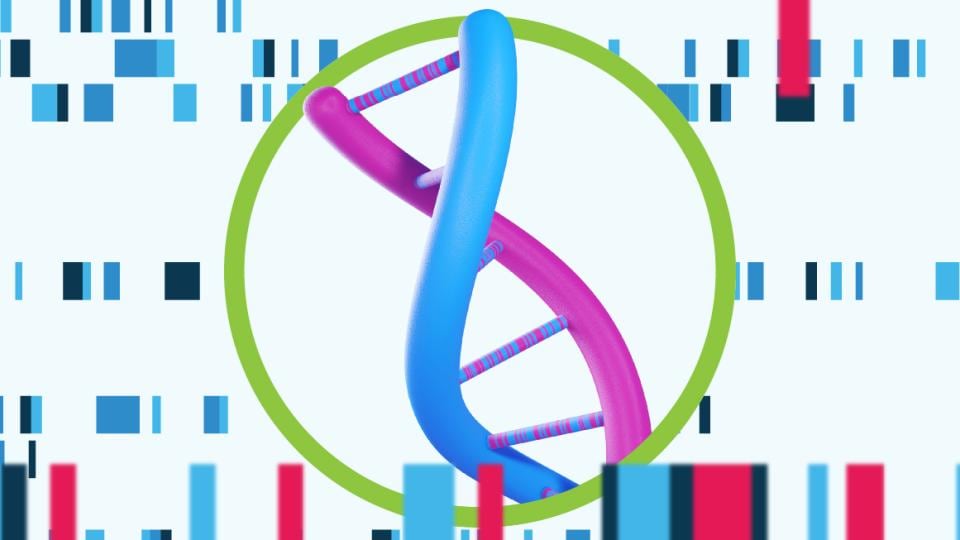Autoimmune Diseases are Incurable – How New Targeted Therapies Could Change That

A healthy immune system protects our bodies by fighting disease and infection. Autoimmune diseases occur when the immune system is overactive, causing the body to attack and damage its own tissues – the very thing it’s supposed to protect. Currently autoimmune diseases are incurable – but new targeted therapies could provide hope for patients around the world.
It is not known what triggers the immune system to go into overdrive, but an autoimmune disease diagnosis can mean chronic inflammation, debilitating pain, and life-threatening health issues. And it is estimated that about 8% of the population is affected by autoimmune diseases.
There are nearly 100 autoimmune diseases known today, including lupus, type 1 diabetes, multiple sclerosis, celiac disease, inflammatory bowel disease, Crohn’s disease and rheumatoid arthritis.
Current treatments generally focus on reducing or suppressing the immune system’s overall activity. And weakening the immune system puts the patient at increased risk for other infections and diseases.
But what if we could target the affected cells and tissues without weakening the overall immune system? Could we better treat or even cure autoimmune diseases?
If so, this could be a game changer. That’s why Leaps by Bayer, the impact investment arm of Bayer, is building and investing in companies that are exploring breakthrough techniques to advance targeted curative immunotherapies.

Leaps by Bayer was created to drive the goal to solve some of humanity’s greatest challenges in human health and agriculture. The approach revolves around 10 Leaps that if solved, could have a major impact on humanity.
Leap No. 6 seeks to reverse autoimmune diseases and chronic inflammation. Systematically addressing autoimmune diseases and chronic inflammation could enable patients to live free of pain, disease management, and life-threatening conditions. The three newest portfolio companies rising to the challenge are Mozart Therapeutics, GRO Biosciences and Deka Biosciences.

Mozart Therapeutics: exploring T-cells for treating autoimmune and inflammatory diseases like celiac disease
T cells are an important type of white blood cell of the immune system, and regulatory CD8 T cells are a type of T cell that suppresses immune response. Mozart Therapeutics’ focus is to explore several modulators that can harness the power of these regulatory CD8 T cells to directly target diseased cells. Research shows that regulatory CD8 T cells may be able to fight off multiple sclerosis and celiac disease. Additional research by Mozart Therapeutics suggests that these cells may also fight other diseases like type 1 diabetes and inflammatory bowel disease.
GRO Biosciences: using Non-Standard Amino Acids (NSAAs) to transform protein therapies for chronic conditions like diabetes
Our cells use proteins for a variety of vital functions including defending our body from infection. Many diseases are treated today with protein therapies which use engineered versions of human proteins to replace the missing or repair the malfunctioning proteins causing the disease. The therapies, however, have issues with stability, potency, side effects from unintended immune responses and mode of delivery into the damaged cells. Current therapies use proteins created with the 20 amino acids found in nature. GRO Biosciences (GRObio) developed families of artificial amino acids called Non-Standard Amino Acids (NSAAs), opening the door to limitless protein possibilities to create improved protein therapeutics that offer increased potency, stability, and targeted delivery without the immunogenic side effects. Still in the early stages, GRO Bio is advancing two families of NSAAs to build a pipeline to treat multiple diseases including diabetes and autoimmunity.
Deka Biosciences: transforming the delivery of cytokine therapies to treat cancer and inflammatory diseases
Cytokines are small proteins acting as a messenger between cells, playing an important role in how our bodies respond to inflammation and attacks of the immune system. Deka Biosciences is focused on the development of novel cytokine therapies to drive cures in cancer patients and control inflammatory diseases such as Crohn’s, psoriasis, rheumatoid arthritis, and sepsis. Deka has developed disease-specific therapeutic proteins called Diakines™ to serve as a platform to deliver combinations of cytokine pairs directly to diseased tissue. Because their research shows that people do not respond to the same cytokine in the same way, Deka has developed disease-specific tests to ensure the best therapeutic platform is selected for the patients most likely to benefit. And this is just the beginning: through precision medicine they remain committed to developing Diakines™ that can potentially treat every patient.




















